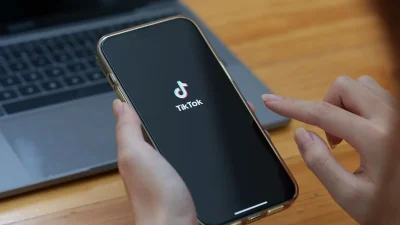TikTok plans to become a multi-billion e-commerce business. One of the ways the social media service aims to achieve that is by making every post on the platform ‘shoppable.’
While TikTok has not officially announced the planned feature, a spokesperson for the company confirmed to Bloomberg that the feature is “an early test.” The social media giant has the groundwork set for this feature with the TikTok Shop, as well as the popular #TikTokMadeMeBuyIt trend.
TikTok Shop expansion
TikTok intends to leverage its reach by using object recognition tech to automatically identify elements in uploaded videos. It will then recommend similar items on the TikTok Shop.
The feature was tested on small focus groups in the UK and US. Bloomberg reports that during these tests, a slight hitch was noted when a TikTok Shop product link was inserted in a video without the user’s knowledge.
Currently, only approved accounts – specifically brands and popular influencers – can tag products for purchase recommendations. The new ‘Shop Now’ feature will expand beyond that, once the early testing phases are complete.
TikTok’s trajectory
Locate2u News previously reported that TikTok has more than 1.5 billion monthly users and is aiming to reach 2 billion monthly users by the end of this year. That is a lot of spending power, especially for retailers who want to expand their online presence.
TikTok is already in a position to leverage its massive social media presence to drive sales and change how we shop online. The platform generated a massive $9 billion in revenue in 2022 before reaching the $10 billion milestone last year.
It is planning to go even further this year by expanding its TikTok Shop into Brazil, Colombia, and Argentina, where it could easily give retail giants like Amazon, Temu, and Shein a run for its money.
TikTok previously partnered with Adjust, an analytics company, to determine the business impact of this expansion. The data showed that in 2022, Latin America had more than 500 million active smartphones in use.
Users in Brazil, Colombia, and Argentina also tend to spend more than five hours a day online. It’s predicted that by 2025, 81% of the population will have access to a smartphone.
Child safety in the spotlight
Beyond its expansion plans, TikTok has been making headlines in recent weeks for its handling of child safety on the platform.
TikTok’s CEO Shou Zi Chew – along with Meta’s Mark Zuckerberg, X’s Linda Yaccarino, Snap’s Evan Spiegel, and Discord’s Jason Citron – faced criticism for enabling the exploitation of children.
The CEOs appeared before the US Senate Judiciary Committee on Wednesday, following the outrage of parents and lawmakers who said these platforms should be doing more to prevent teen suicide and shield children from predators.
US Senate Majority Whip Dick Durbin said Big Tech are “responsible for many of the dangers children face online.” He cited their “design choices and failures to invest in trust and safety” as driving factors, coupled with their “constant pursuit of engagement and profit.”
About the author
Cheryl has contributed to various international publications, with a fervor for data and technology. She explores the intersection of emerging tech trends with logistics, focusing on how digital innovations are reshaping industries on a global scale. When she's not dissecting the latest developments in AI-driven innovation and digital solutions, Cheryl can be found gaming, kickboxing, or navigating the novel niches of consumer gadgetry.











